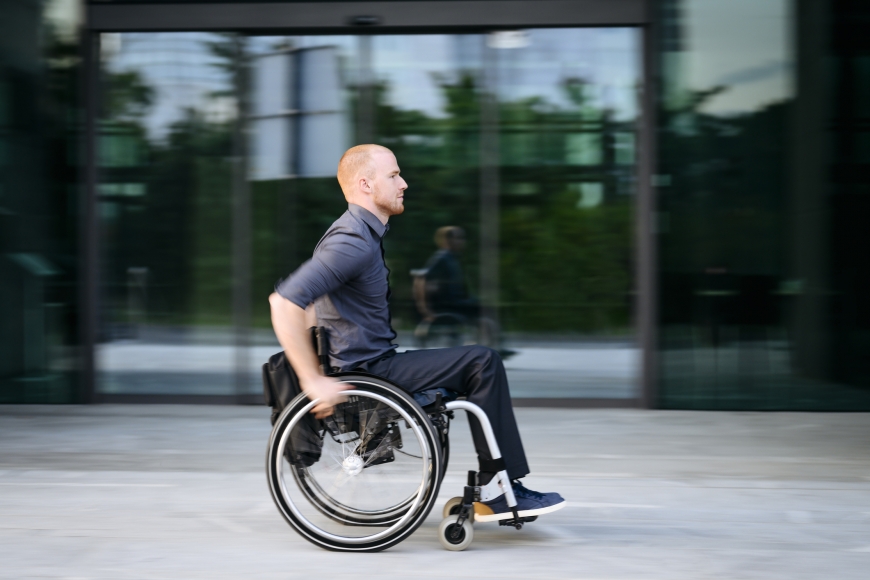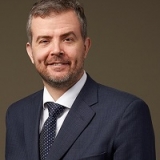Being acknowledged is the first step to being included

When I started my career as a young lawyer, I made a decision to tell people upfront that I used a wheelchair.
On the occasions when I didn't, people often didn’t realise that I was the lawyer who they had spoken to on the phone.
They would assume I was attending a meeting for work experience, or address their questions to my colleague instead of me. This continued even as my career progressed.
Reactions were sometimes positive, leading to a discussion about how I acquired my disability, or sparking a conversation about that person's relative or friend who lives with disability.
But often I would realise the perception they had was a negative one.
My disability, which is a spinal cord injury sustained during a rugby union accident aged 16, doesn’t define me – but it is an integral aspect of who I am.
With time and reflection, fear and trepidation have been replaced with a confidence that I am equal to anyone else.
December 3 marks International Day of People with Disability. It is an important day to celebrate people with disability, and it's also an opportunity to reflect on the progress of disability rights in Australia and globally.
In Australia, 4.4 million people live with disability, with approximately 80 per cent of disability being acquired in a person’s life.
Yet for far too long, silence on disability rights has led to events which preceded the establishment of royal commissions, to the creation of taskforces to remove young people from aged care facilities, and, in the most tragic cases, to the deaths of Australians living in their own homes, like the late Ann Marie Smith.
This silence has meant people with disability have had to fight to be heard, forced to explain their presence in employment settings and denied everyday choices that Australians without disability take for granted, such as having a say in where they live.
In a policy sense it is often "us" and "them".
We are all one sporting contest, car crash or unexpected illness away from disability. To live a full life we need accessibility built into all the key elements of daily life, such as housing, employment, and transport.
Globally, the United Nations Convention on the Rights of Persons with Disabilities and the Sustainable Development Goals refer specifically to disability issues. But on a day-to-day basis these tools are limited in their impact.
Currently there is no mandatory minimum accessibility requirement for new houses in Australia. It is estimated that less than 5 per cent of new housing meets a minimum accessibility standard.
Corporations will often proudly refer to their human rights policies and corporate social responsibility programs. Diversity champions tout their credentials and large well-paid organisations exist to advise on diversity.
But disability is often left out of the diversity conversation.
In Australia, 48 per cent of people aged 15-64 with disability are employed, compared to 80 per cent of Australians without disability.
The unemployment rate – that is, people who want work but do not have it – is double for working-age people with disability.
Australia ranks 21st out of 29 countries in the OECD for employment participation for people with disability, and last for people with disability living in poverty.
One way for employers to improve their record on disability rights is to prepare a Disability Action Plan that outlines how they make their products and services accessible to people with disability, and also its approach to diversity and inclusion.
These plans fulfil the intent of the Disability Discrimination Act and are registered publicly with the Australian Human Rights Commission.
Yet of the top 50 ASX-listed companies in Australia, just seven have registered Disability Action Plans. To create the action intended by the plans they must be supported and championed by senior leadership, and the outcomes they seek to achieve measured and reported on.
Too often disability issues seem to be filed away to be dealt with quietly at a later date, rather than incorporated into policymaking at all levels.
Too often, when new buildings are built or modes of public transportation created, the inaccessible legacies of the past remain.
The COVID-19 pandemic has meant that many people around the world have newly experienced the isolation and lack of integration that can accompany disability. But in many discussions on the COVID-19 recovery the lives of people with disability have been forgotten.
Much like other significant social change achievements, such as marriage equality, people with disability need allies to join in.
Encouragingly, we are seeing a small but growing disability pride movement and greater awareness that diversity must always include disability.
In November, US President-Elect Joe Biden became the first President-Elect to make a reference to disability in a victory speech, when he said: "We must make the promise of the country real for everybody – no matter their race, their ethnicity, their faith, their identity or their disability."
To be acknowledged is the first step towards true inclusion.

